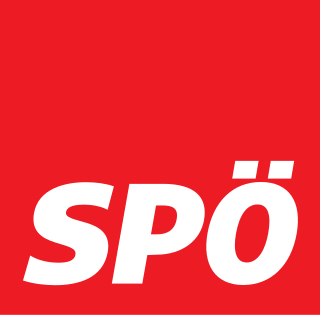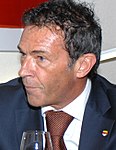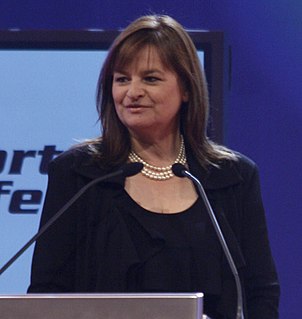| |||||||||||||||||||||||||||||||||||||||||||||||||||||||||||||||||||||||
All 183 seats in the National Council 92 seats needed for a majority | |||||||||||||||||||||||||||||||||||||||||||||||||||||||||||||||||||||||
|---|---|---|---|---|---|---|---|---|---|---|---|---|---|---|---|---|---|---|---|---|---|---|---|---|---|---|---|---|---|---|---|---|---|---|---|---|---|---|---|---|---|---|---|---|---|---|---|---|---|---|---|---|---|---|---|---|---|---|---|---|---|---|---|---|---|---|---|---|---|---|---|
| Turnout | 4,695,225 (80.42%) [1] | ||||||||||||||||||||||||||||||||||||||||||||||||||||||||||||||||||||||
| |||||||||||||||||||||||||||||||||||||||||||||||||||||||||||||||||||||||
| |||||||||||||||||||||||||||||||||||||||||||||||||||||||||||||||||||||||
| This article is part of a series on the |
| Politics of Austria |
|---|
 |
Legislature |
| Foreign relations |
Parliamentary elections were held in Austria on 3 October 1999. [2]

Austria, officially the Republic of Austria, is a country in Central Europe comprising 9 federated states. Its capital, largest city and one of nine states is Vienna. Austria has an area of 83,879 km2 (32,386 sq mi), a population of nearly 9 million people and a nominal GDP of $477 billion. It is bordered by the Czech Republic and Germany to the north, Hungary and Slovakia to the east, Slovenia and Italy to the south, and Switzerland and Liechtenstein to the west. The terrain is highly mountainous, lying within the Alps; only 32% of the country is below 500 m (1,640 ft), and its highest point is 3,798 m (12,461 ft). The majority of the population speaks local Bavarian dialects as their native language, and German in its standard form is the country's official language. Other regional languages are Hungarian, Burgenland Croatian, and Slovene.
Although the Social Democratic Party remained the largest party in the National Council, a right-wing coalition government was formed by the Freedom Party of Austria (FPÖ) and the Austrian People's Party (ÖVP) after several months of negotiations. Although the FPÖ had finished a fraction of a point ahead of the ÖVP in the popular vote, ÖVP leader Wolfgang Schüssel became Chancellor rather than controversial FPÖ leader Jörg Haider. Haider, who had also been elected Landeshauptmann of Carinthia, was not appointed to the cabinet and resigned as party leader. [3]

The Social Democratic Party of Austria is a social-democratic political party in Austria and alongside with the People's Party one of the country's two traditional major parties.

The Freedom Party of Austria is a right-wing populist and national-conservative political party in Austria. The party, led by Heinz-Christian Strache, is a member of the Europe of Nations and Freedom group in the European Parliament, as well as of the Movement for a Europe of Nations and Freedom.

The Austrian People's Party is a Christian-democratic and conservative political party in Austria. A successor to the Christian Social Party of the late 19th and early 20th centuries, it was founded immediately following the reestablishment of the Republic of Austria in 1945 and since then has been one of the two largest Austrian political parties with the Social Democratic Party of Austria (SPÖ). In federal governance, the ÖVP has spent most of the postwar era in a grand coalition with the SPÖ. Most recently, it has been junior partner in a coalition government with the SPÖ since 2007. However, the ÖVP won the 2017 election, having the greatest number of seats and formed a coalition with the national-conservative Freedom Party of Austria (FPÖ). Its chairman Sebastian Kurz is the youngest Chancellor in Austrian history.
However, foreign governments remained critical of the FPÖ's inclusion in the government and the fourteen other members of the European Union imposed sanctions on the country, whilst domestically the government faced protests organised by the SPÖ and Greens. [3] However, this pressure on the government helped stabilise it and when it became clear that the FPÖ was not a threat to the country's democracy, sanctions were lifted. [3]

The European Union (EU) is a political and economic union of 28 member states that are located primarily in Europe. It has an area of 4,475,757 km2 (1,728,099 sq mi) and an estimated population of about 513 million. The EU has developed an internal single market through a standardised system of laws that apply in all member states in those matters, and only those matters, where members have agreed to act as one. EU policies aim to ensure the free movement of people, goods, services and capital within the internal market, enact legislation in justice and home affairs and maintain common policies on trade, agriculture, fisheries and regional development. For travel within the Schengen Area, passport controls have been abolished. A monetary union was established in 1999 and came into full force in 2002 and is composed of 19 EU member states which use the euro currency.
Voter turnout was 80.4%. [4]















